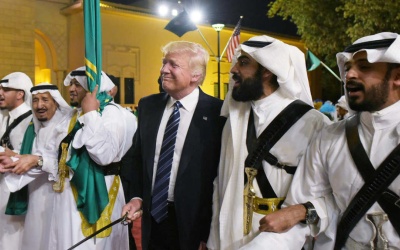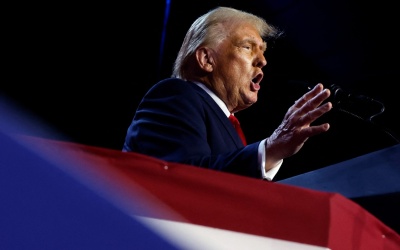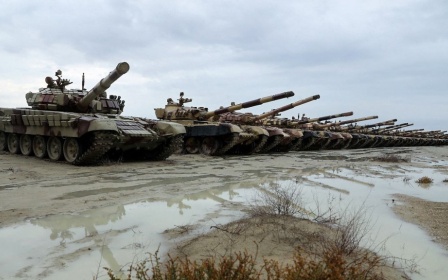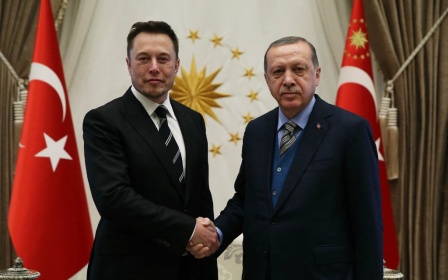Elon Musk's meeting with Iranian official is sign Trump's tearing up traditional US diplomacy
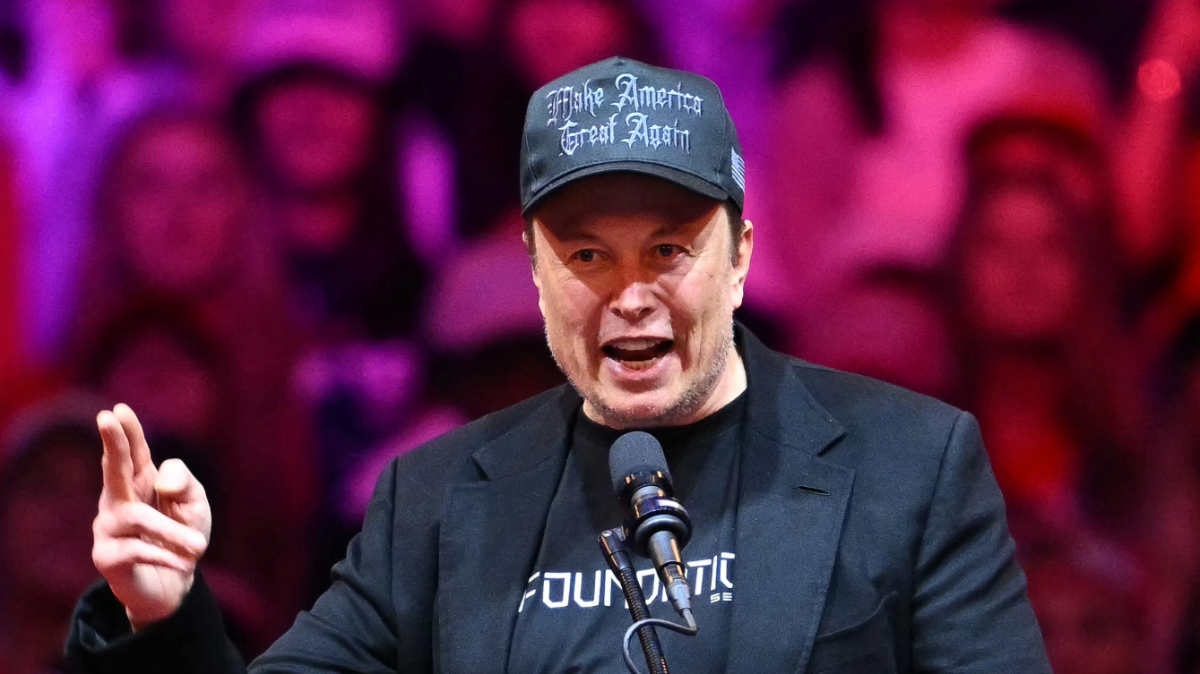
Less than one week after the US presidential election, President-elect Donald Trump’s incoming administration has already held informal direct talks with Iran.
According to The New York Times, Trump advisor Elon Musk met with Iran’s ambassador to the United Nations, Amir Saeid Iravani, in New York City on Monday.
The meeting has gone largely under the radar. Still, it is an unprecedented development that suggests the Trump administration is gearing up to operate beyond the confines of traditional diplomacy - even more than during his first term.
The Musk-Iran meeting is remarkable when taken in the context of previous presidential administrations rarely meeting with officials from the Islamic Republic of Iran, and it’s even rarer for those meetings to be leaked.
The Biden administration held meetings with Iran’s UN ambassador in New York in late 2022 and early 2023, seeking to revive the collapsed 2015 nuclear deal.
New MEE newsletter: Jerusalem Dispatch
Sign up to get the latest insights and analysis on Israel-Palestine, alongside Turkey Unpacked and other MEE newsletters
Robert Malley, Biden’s former Iran envoy, was the point person and earned scorn from Republicans. Malley was later placed on unpaid leave due to allegations he mishandled classified information. He has since drifted into obscurity with the FBI investigation of his actions as Iran envoy.
The meeting between Musk, the world’s richest man, and Iravani underscores how Trump may be rewriting the status quo in American diplomacy. It signals that Trump does not need to lean on American diplomats or even political nominees to talk directly to the US’s friends and enemies. In fact, he may prefer not to use them at all.
During the height of tensions between Iran and the US in 2024 over Israel’s wars on Gaza and Lebanon, Biden’s top Middle East officials only held indirect talks with Iran.
Oman has been the main venue for such negotiations, with Arab diplomats shuttling between the two sides' rooms, passing messages. That “mediator position”, which Turkey, Oman, Saudi Arabia and the UAE have all tried to tap, could become redundant if Trump uses US citizens.
All in the family
Trump has a history of leaning on informal advisors - and family - over traditional officials. His son-in-law, Jared Kushner, was a key architect of the Abraham Accords, where the UAE, Morocco, and Bahrain normalised ties with Israel. He also crafted much of Trump’s Israel-Palestine peace proposal, dubbed the "deal of the century".
Middle Eastern states embraced Trump's governing style head-on.
Saudi Arabia's Crown Prince Mohammed bin Salman texted Kushner directly, infuriating career diplomats. When Trump left office, Saudi Arabia, Qatar and the UAE poured millions into Kushner's investment fund, Affinity Partners.
The Islamic Republic has sent its own signals. According to The New York Times, Iran's ambassador asked Musk to obtain a sanctions waiver from the US Treasury Department to bring his businesses to Tehran.
A day later, Trump appointed Musk head of the yet non-existent Department of Government Efficiency (Doge). The unofficial department, which is advertising careers on X, is designed to slash government bureaucracy.
On election night, it appeared that Musk had become an honorary member of the family when Trump was filmed interrupting a family photograph to call for Musk and his four-year-old son, X, to join: “We have to get Elon with his boy,” Trump said, calling Musk’s son “gorgeous” and “perfect”.
According to The Wall Street Journal, the tech entrepreneur has become the “most influential” member of Trump’s inner circle, sitting in on interviews for political appointees and calls with foreign leaders.
Few details have emerged from the Musk-Iran talks, but reportedly, he has also been speaking with Russian President Vladimir Putin, who Trump needs to engage to achieve his promise of ending Russia’s war on Ukraine.
According to The New York Times report, Iran requested the meeting with Musk, which may reflect Iran’s weariness over Trump’s return to the White House.
'Iran in danger'
During his previous term as president, Trump unilaterally withdrew from the 2015 nuclear deal and unleashed a “maximum pressure” campaign on Iran with crushing sanctions.
The Biden administration did not lift sanctions, but energy experts say it stopped enforcing them. Between July and September of this year, Iran’s oil exports stood at 1.7 million barrels per day, roughly three times higher than the same period in 2019 when Trump was in office.
Trump also ordered the assassination of Iran's Revolutionary Guard Corps commander, Qassem Soleimani, in 2020.
Trump accused the Biden administration of failing to bring pressure on Iran as it sought to revive the 2015 nuclear deal. But even Trump admitted that since Israel’s war on Gaza erupted after the Hamas-led 7 October attacks on southern Israel, the Islamic Republic has been weakened.
Iran’s strategy of building up a proxy force of allied militias called the "axis of resistance" has faced a severe setback, with Israel assassinating the leaders of Hamas and pounding Lebanon’s Hezbollah.
Iran’s strategy was to use its allies, especially Hezbollah, as a deterrent force against direct strikes by Israel or the US on its soil. In October, Israel launched an attack on Iran that targeted and reportedly destroyed several prized S-300 air defence systems and a missile factory. Hezbollah, on the defence, did not retaliate in kind.
Meanwhile, Iran’s economy is still being battered by US sanctions. Earlier this month, Iran began imposing rolling power blackouts across the country, including in the capital. Iran has the world’s third-largest oil reserves and second-largest natural gas reserves. Still, it has failed to maximise the potential of its energy sector due to western sanctions and significant defence spending.
Several days before Israel’s attack, Trump told Al Arabiya, “In its own way, it's (Iran) probably in danger…maybe more so than they would have thought a month ago…I think it's in a lot of danger.”
If Trump’s cabinet picks are confirmed, he is going be surrounded by Iran hawks. Fox News host Pete Hegseth, Trump’s nominee for secretary of defence, said the US should allow Israel to attack Iran’s nuclear facilities. Senator Marco Rubio, the nominee for secretary of state, has advocated for Israel to ramp up attacks on Iran.
However, like Trump’s hawkish national security advisor, Mike Waltz, Rubio has not opposed an Iran deal on principle.
Middle East Eye delivers independent and unrivalled coverage and analysis of the Middle East, North Africa and beyond. To learn more about republishing this content and the associated fees, please fill out this form. More about MEE can be found here.


